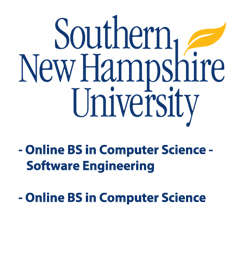
What is Coding in Java?Java the language was named after Java, the coffee. Is the name more of a reflection of the founders’ coffee drinking habits or their fondness for random words? There’s more than one story out there. Whatever the origin, though, Java managed to create quite a buzz. Java was designed to be platform-independent. "Write once, Run anywhere" was a slogan when the product was first released back in 1995. Like other technologies, it’s sometimes fallen short of its slogan and been parodied. It remains a very popular language, though, and has been used in the development of other languages and products, for example, XML and Ajax. Java was designed to be robust and secure. Unlike other dynamic languages like PHP, it's primarily a client-side technology. It has aspects of both, however. The Java servlet is server side. Java is popular for several reasons: because the product itself is good and because it's open source. New York City Mayor Michael Bloomberg vowed to learn to code with the Java programming language in 2012.
Java can be good preparation for Android development, even though (as Google has reiterated), the two are not identical. Java is also a strong foundation for iPhone application development. Those who have a foundation in Java can go on to learn related languages like Ajax. The general public associates Java with mobile phones and web apps, but it is used in a lot of other industries. One is health information/ health informatics. It can be good to get a handle on the language even before applying to educational programs. Some graduate level informatics programs list it among the preferred skills for applicants. History of JavaJava development began as Oak development in the early 90’s. James Gosling is credited as the founder. Mike Sheridan and Patrick Naughton were also on the team. An early goal was to put computer technology into digital devices. Not all of the early attempts were successful. The first home the developers found for their new technology was the internet – and quite a home it turned out be! Eventually, of course, Java was utilized in many digital devices. There have been many versions of Java. 1998 brought the Java plug-in and CORBA interoperability. 2000 brought the Java Naming and Directory Interface into the core. 2006 saw the Java Compiler API and additional support for scripting languages. The process continues. 2013 should bring Java SE 8 – and discussion of Java 9 is reportedly already underway. In 2010, Java became part of Oracle. Java is not maintained by any of the third party standards organizations. Instead, Oracle's own releases form the de fact standard. Learning JavaOracle is the go-to place for downloads. The public can also find a lot of free resources for using Java, including a beginner’s tutorial, code samples, and forums. There’s also an option to be certified in the latest version of Java Standard Edition through Oracle at either the associate or professional level. (Oracle reports that a master’s level certification may be coming.) Oracle Enterprise Edition certifications are available as high as the expert level – certification at this level requires strong performance on open-ended tasks and is reportedly very difficult to achieve. Oracle is the go-to place for Java downloads and tutorials.
You can purchase a certification package in SE or EE. Packages include coursework in your choice of formats. They also include testing vouchers. (If your goal is to validate your learning though certification, expect to make a monetary as well as a time investment.) If your goal is just to learn the language and you’re good at self-study and self-pacing, you’ll find a lot out there that’s free, some of it available through third-party organizations. Java Lessons will give you a simulation and an animation so you can get a feel for the language right away. CodeHS was developed by a couple Stanford University Computer Science graduates and is a great choice for high school students interested in building their foundation in the Java programming language. Code Academy is also another top notch learning environment for Java and other programming languages. Java Beginner offers a series of tutorials; they will also link you to a set of possible interview questions. NetBeans, meanwhile, will link you to resources around the web, including games and beginner’s tutorials. Female programmers have an additional resource in the Java Woman site. Most software engineering and computer science undergraduate degree programs incorporate the Java programming language into the undergraduate curriculum. [Find a software engineering program in your state or look into undergraduate computer science degree options.] Some graduate programs do like to see Java coursework on your transcript. In many cases, it doesn't matter where you learned your programming -- especially if you've got a track record in the industry. Learn more about what a Java Developer does. |

